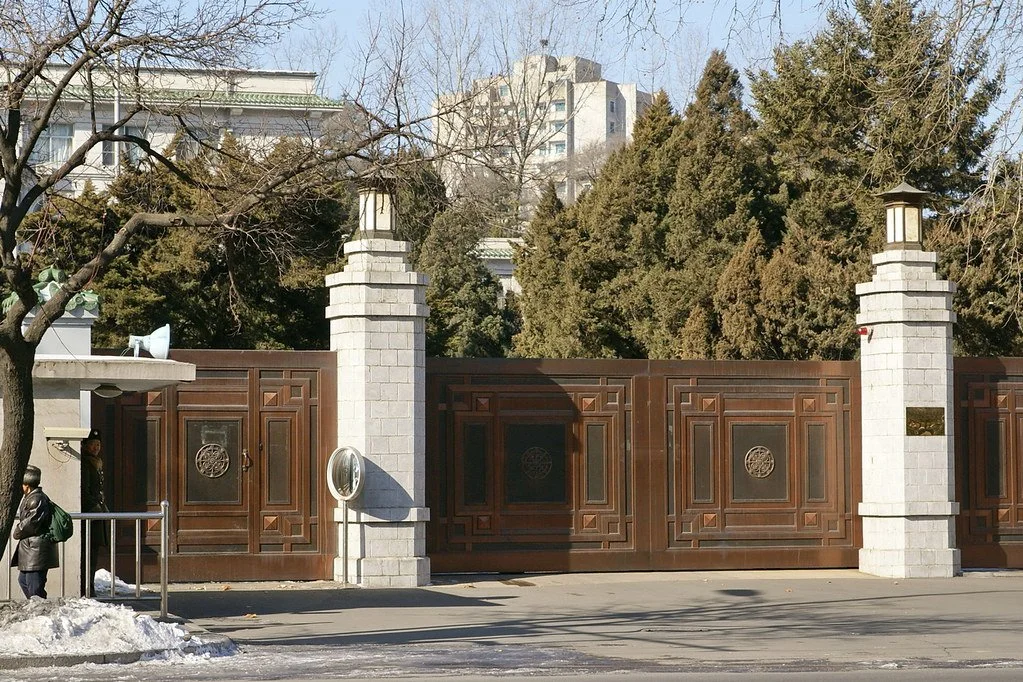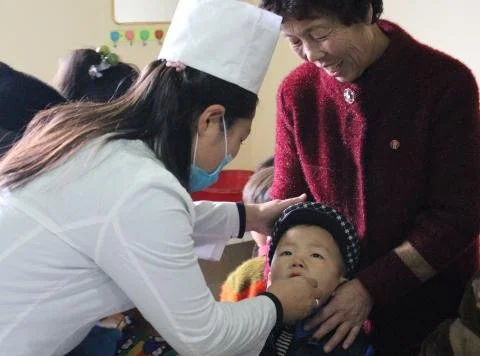DPRK's Gradually Opening
Since August 27, 2023, the DPRK (Democratic Peoples’ Republic of Korea or North Korea) has been slowly opening its borders. Borders have been closed due to the COVID pandemic since the onset of the pandemic, which began at the end of January 2020. Recently, though, both Chinese and Russian embassies have re-engaged. Both country’s ambassadors have resumed diplomatic relations in Pyongyang, but no other consulates have returned to the DPRK. Only North Korean citizens living abroad have started to return home. Currently, there are two or three flights a week from Beijing, China into Pyongyang, and flights have also resumed from Vladivostok, Russia.
Chinese Embassy in Pyongyang, DPRK
Initially, North Korean citizens returning home were required to quarantine for seven days at official governmental quarantine facilities. These mandatory quarantines have just been abolished allowing North Koreans to return at a faster and more efficient rate. These recent changes indicate that life inside the DPRK has finally normalized.
However, normal travel to and from the DPRK has not resumed. There is no knowledge of when the border will reopen for internationals. At the same time, the DPRK is downsizing and closing embassies abroad, particularly in Africa.
As the DPRK border has yet to fully open, tens of thousands of North Koreans have been stuck abroad these past three to four years. Therefore, the country is focusing on returning their own citizens home. When internationals are allowed to re-enter, diplomats and UN representatives are likely to be the first to return. UN entities, such as the UNDP, UNICEP, and WHO are also advocating for other NGOs to be able to return to working on the ground in the DPRK.
Air Koryo Flights into Pyongyang Resumed for DPRK Citizens
Despite border closures, the UN has been able to continue humanitarian assistance to the country throughout the pandemic. According to 2021 statistics, approximately 11.3 million North Koreans need nutritional and medical support. DPRK’s Ministry of Public Health this year indicated that there have been no major natural disasters in 2023, but the status of food security inside the country is unclear.
This year the UN has been able to support children with standard childhood PENTA vaccines. Mothers and their newborns received medical support through emergency birthing kits, and infants ages 6 to 23 months of age have also received vital nutritional and vitamin A supplements. Most of this support was provided through UNICEF. Although both Russia and China have provided the DPRK with food, on the ground data is needed to accurately access the current food situation in country.
Of primary concern is the status of infectious diseases inside the DPRK, including not only COVID but also tuberculosis. The Global Fund Grant has provided tuberculosis kits inside the country this year, but apparently the DPRK has not applied for support in 2024.
UNICEF Providing Humanitarian Assistance to Children in the DPRK
One reason for this is that more than humanitarian support, the DPRK is interested in development. Their priorities include enhancing agriculture, which would also directly increase food security. Unfortunately, any development work is forbidden by global sanctions against the DPRK.
In addition, humanitarian relief funding for the DPRK is drastically declining. With the rise in world-wide conflicts and crises, interest for supporting humanitarian aid to the DPRK is naturally reducing. Even though the UN was able to provide minimal life-saving aid in 2023, the support they provided was less than 10% of what the UN requested, and UNICEF accounted for approximately 80% of the aid that reached the DPRK.
Only when humanitarian workers are allowed to return working on the ground in the DPRK will the situation be able to be accurately assessed. Many humanitarian organizations have no to minimal activity inside the country. For example, the World Food Program (WFP) is suspending aid until they have national staff on the ground. Other humanitarian organizations, like IGNIS Community, who have been able to provide minimal support, have only been able to do so through trusted relationships and through aid monitoring and verification conducted by local national counterparts. Trust and long-term presence goes hand-in-hand with implementing life-saving aid.


